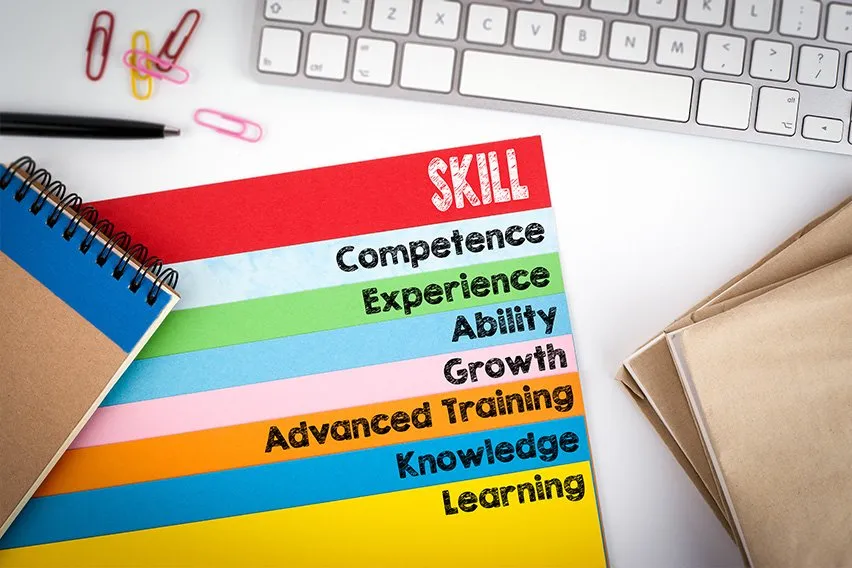Essential Skills Every Entrepreneur Should Have

Becoming a Successful Entrepreneur
Becoming an entrepreneur is an incredibly attractive prospect for many ambitious individuals. The pull starts with a great business idea, and the desire to design your own life and be your own boss. Most successful businesses and brands we see and know today were created by entrepreneurs. However, starting a business is no easy feat to undertake. Before embarking on your new venture, we put together a comprehensive list of the seven skills you should have as an entrepreneur to set yourself up to succeed.

1. Adaptability
This may not be the first thing you think of when it comes to skills an entrepreneur would need, but when you dive headfirst into your business venture, not everything is going to go according to plan. Though it is important to have a clear idea of what you want, entrepreneurs need to plan for the unexpected. You need to be able to decisively shift to the next best and most effective option. This is sometimes referred to as strategic adaptability.
The simplest way you can practice this is to plan with a thought-out margin of change, and to learn from past mistakes and experiences. Sometimes things happen that are out of your control, and what people will be watching out for will be how quickly you can react and pick yourself back up.
2. Analytical Skills
Inevitably, at one point you are going to encounter a big task or challenge that may initially seem too daunting to handle. Good analytical skills allow you to break down and classify them into consumable pieces of information. Three interconnected sub-skills support your analytical abilities:
Critical Thinking
This is the process in which we rationally synthesize and evaluate a given situation or piece of information before making a judgment or a logical connection between ideas or solutions.
Research
Research is a fundamental aspect of analysis that you can never use too liberally. This is where we fact check, assess credibility, and back up our ideas with proof and data. You cannot correctly determine a solution to a problem if your understanding of it is not sound in the first place.
Problem Solving
This is where the critical thinking, research and analysis of an entrepreneur culminates. To effectively problem solve, one many also need to consider the various angles—even the least obvious—and assess if this targets the root of the problem and handles it most efficiently.
3. Communication Skills
Whether you work with a large team, or all on your own, communication is a key skill that successful entrepreneurs need to get their messages across. Good negotiation skills are often even more persuasive than a good idea that an entrepreneur delivers badly. The way you communicate is important both in person and in the way you conduct yourself online. Your online presence, including your email address and social media handles, are indicators of your professionalism. For an entrepreneur, these can make or break business relationships.
Business connections are all about building trust and rapport, and some people make their living off of it. In the case of business consultants, their jobs require them to be excellent communicators (and have high emotional intelligence). If you have a natural knack for this, you may want to consider business consultancy as a profession.
Knowing how to communicate effectively also eradicates small miscommunications or errors that may lead to bigger problems down the line. It is always good practice to keep an atmosphere of open communication among your employees so they can voice any issues they have. That way, any issues can be resolved as soon as possible.
4. Financial Management Skills
By definition, an entrepreneur sets out to make a profit. To do this, entrepreneurs need to know how to handle money in a business. This often involves taking risks with capital, or securing the right investors and investments. Though it is possible to hire other professionals to handle this task, it is still best that the entrepreneur at least has basic financial knowledge in order to ensure their business is making the right monetary decisions. If you are completely new to finance or business, we have a comprehensive guide that provides all the fundamental information you need to get started.
5. Leadership Skills
Having good leadership skills is vital when you are putting together a team to launch a new business or if you are hired to lead an existing one. Leaders must be able to inspire and command respect in order to motivate their workers to strive for the same goals. We can consider this an umbrella topic for a core subset of skills you need in a leadership position. You can find a detailed breakdown of these skills here.
It is often a good idea, especially when working with a new group, to plan sessions for team building. This allows you to get to know everyone, and for them to get to know one another. By doing so, you can discover their strengths and be able to delegate tasks more effectively.
Delegation is another underrated and important skill to have as a successful entrepreneur and leader. Studies have shown that knowing when to delegate tasks is paramount to growth in a business. This is harder than it looks, however. It takes maturity to understand when others are able to carry out a task better than you can. You can check out our in-depth look into the practice of delegation.
6. Marketing Skills
It’s one thing to develop a fantastic product, but that will not mean anything for your business if you do not target and maximize your audience. Brilliant marketing is a way to connect with the people who will be consuming your product or service. This also promotes and ensures buyer loyalty.
Marketing in this day and age has never been easier. With the advent of social media, businesses can keep their customers constantly informed about new releases and make personal engagements. This even allows people to share your brand content with others on their own.
The reach of digital marketing is endless. What you need is the skill and creativity to utilize it to your advantage. Key aspects of good marketing include a clear vision and appropriate branding. This means setting a look and tone that befits your target audience.

7. Strategic Planning Skills
In essence, strategic planning involves organization. It’s one of the skills entrepreneurs use to manage and align priorities, set goals and streamline operations. One way to practice this is to put everything into visuals like strategy maps or frameworks. This forces you to condense plans in a way that will let everyone in your company know what page you are on.
Planning this way is also considered a management activity. You can apply this regularly in scheduled segments, which also serves as documentation of your company’s progress. This way, the company can take a step back to see how far they have come and assess where they need to go.
New companies also set business milestones for themselves as a feature of their strategic planning. Milestones create concrete goals to strive for year by year. Creating structures that plan for growth and obstacles will provide a path that you can monitor. That way you can make sure you do not fall off track and can provide safeguards against any bumps along the way.
Becoming a Successful Entrepreneur
New business owners need to be willing to take real risks before achieving profit. Statistics show that half of new businesses fail after five years, and a large percentage is due to the lack of proper preparation. This means that by equipping yourself properly, you are already setting yourself up with much higher chances of success. By signing up with FreshBooks, you will be giving yourself access to a full range of tools you can use to make sure your business takes off.
RELATED ARTICLES

 How to Start a Business for Social Good
How to Start a Business for Social Good 20 Online Business Ideas: Which Internet Business Is in Most Demand?
20 Online Business Ideas: Which Internet Business Is in Most Demand? 10 Business Ideas with No Employees: How to Run a Business on Your Own
10 Business Ideas with No Employees: How to Run a Business on Your Own Business Ideas for New Graduates: 10 Industries to Look Into
Business Ideas for New Graduates: 10 Industries to Look Into Is My Business Idea Good Enough? Test It Before It Fails
Is My Business Idea Good Enough? Test It Before It Fails How to Start a Real Estate Business: A Blueprint for Getting Started
How to Start a Real Estate Business: A Blueprint for Getting Started